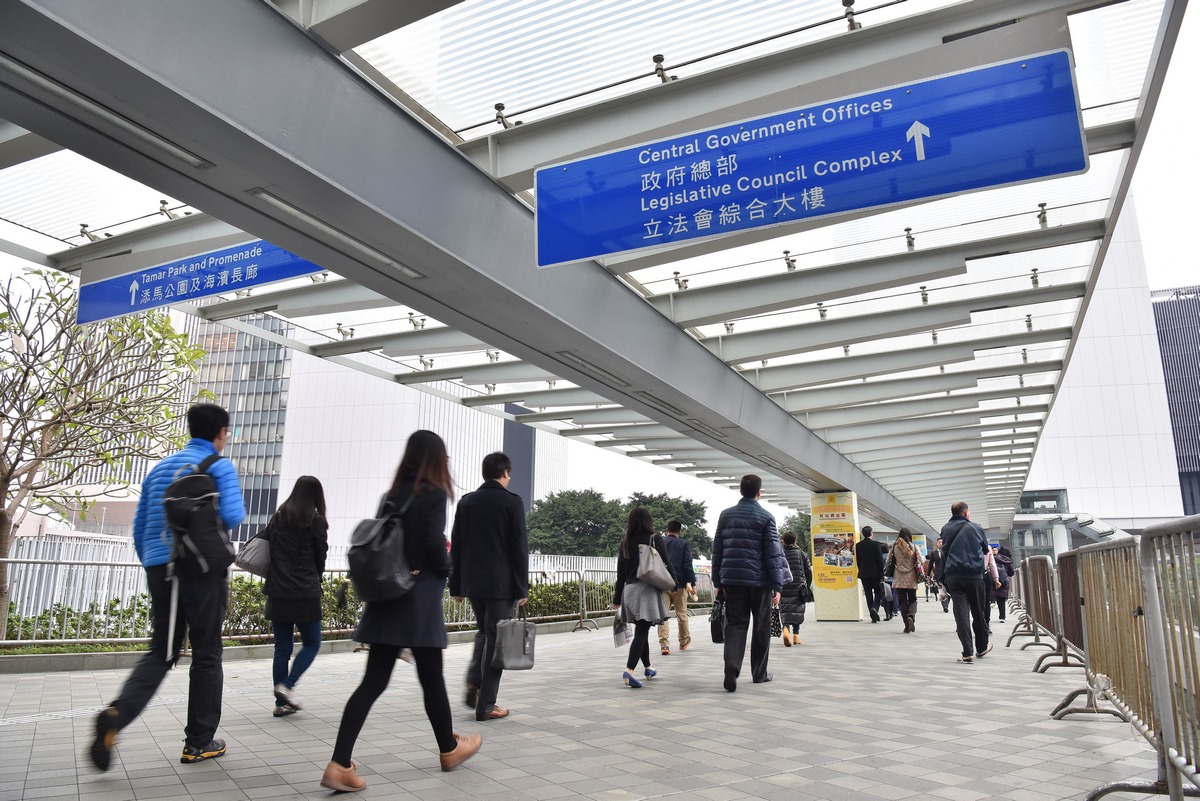Around 200 Hong Kong civil servants could face dismissal after they refused to declare allegiance to the Hong Kong government and sign up to a vow to uphold the Basic Law.

The number was revealed by Secretary for the Civil Service Patrick Nip during an interview with the online media platform HK01 on Monday in which he addressed questions about an oath that the city’s 180,000 civil servants are now required to take pledging allegiance to the government.
Nip also discussed what the notion of contravening conduct might consist of, and what it meant for civil servants to be “patriotic.”
“If some really believe they cannot accept [the oath] and they leave the government, I think this is their own choice. To the civil service, it’s not a bad thing,” Nip said.
“Because for our colleagues who remain in the service, they will know their role and responsibility, is to serve citizens and implement the principle of ‘One Country, Two Systems,'” the senior official added.
In January, Hong Kong civil servants were given four weeks to return a signed pledge declaring they would uphold the Basic law and swear allegiance to the government, or face possible dismissal. The pledge is now mandated by their employment under requirements of the national security law.

The government will review whether civil servants’ conduct as employees does or does not constitute a breach of the oath once they have signed it, Nip said.
Government workers are expected to support its policies. If an individual is deemed to have violated laws or regulations, they would be dealt with according to relevant provisions. Also, if the Civil Service Bureau has to decide if an individual had been in breach of regulations or their oath, they would be given the opportunity to be heard, the secretary said. If a violation was determined, however, they would be subject to existing disciplinary mechanisms, he added.
A Hong Kong civil servants union formed during the 2019 pro-democracy protests was disbanded in January, a day after the government set the four-week deadline. Its leader Michael Ngan resigned from his job at the Labour Department in February, just before the deadline lapsed.

Senior government officials have faced closer scrutiny over their loyalty towards the Hong Kong government as Beijing emphasised the importance of having “patriots” govern the city.
Scrutinised for loyalty
Permanent Secretary for Financial Services and the Treasury Alice Lau was recently criticised by pro-Beijing media for wearing a mask printed with a logo resembling “51,” an alleged reference to a protest slogan. The mask manufacturer has clarified no such meaning was intended in their logo and that it would be redesigned. Lau, on the other hand, made a statement saying that she was not aware of the logo’s meaning and would not wear the masks again.

Another senior official, newly appointed Permanent Secretary for Food and Health Vivian Lau, was also criticised by pro-Beijing media for not removing pro-democracy “Lennon walls” swiftly in 2019. These were message boards that sprang up across the city, made up of Post-It notes and posters in support of the anti-extradition bill protests. The political stance of her husband – who leads a non-profit organisation serving less privileged communities in Hong Kong – was also questioned.

“If [one] discusses whether a colleague or somebody fulfilled a certain set of standards, [we] have to look at the facts and see where the point of scrutiny is, instead of naturally equating them with their family members,” Nip said. “Any criticism and discussions… need to be taken as a matter of fact, and not taken personally.”
Attending June 4th vigil?
Asked whether civil servants could still attend the city’s annual June 4th vigil to commemorate the Tiananmen Massacre, Nip said the question depends on whether such assembly is legal and peaceful.
If a civil servant clearly knows they bear the responsibility of “patriots ruling Hong Kong,” and if something runs contrary to that idea, then they shouldn’t do it, he said.
Support HKFP | Policies & Ethics | Error/typo? | Contact Us | Newsletter | Transparency & Annual Report | Apps
Help safeguard press freedom & keep HKFP free for all readers by supporting our team
























